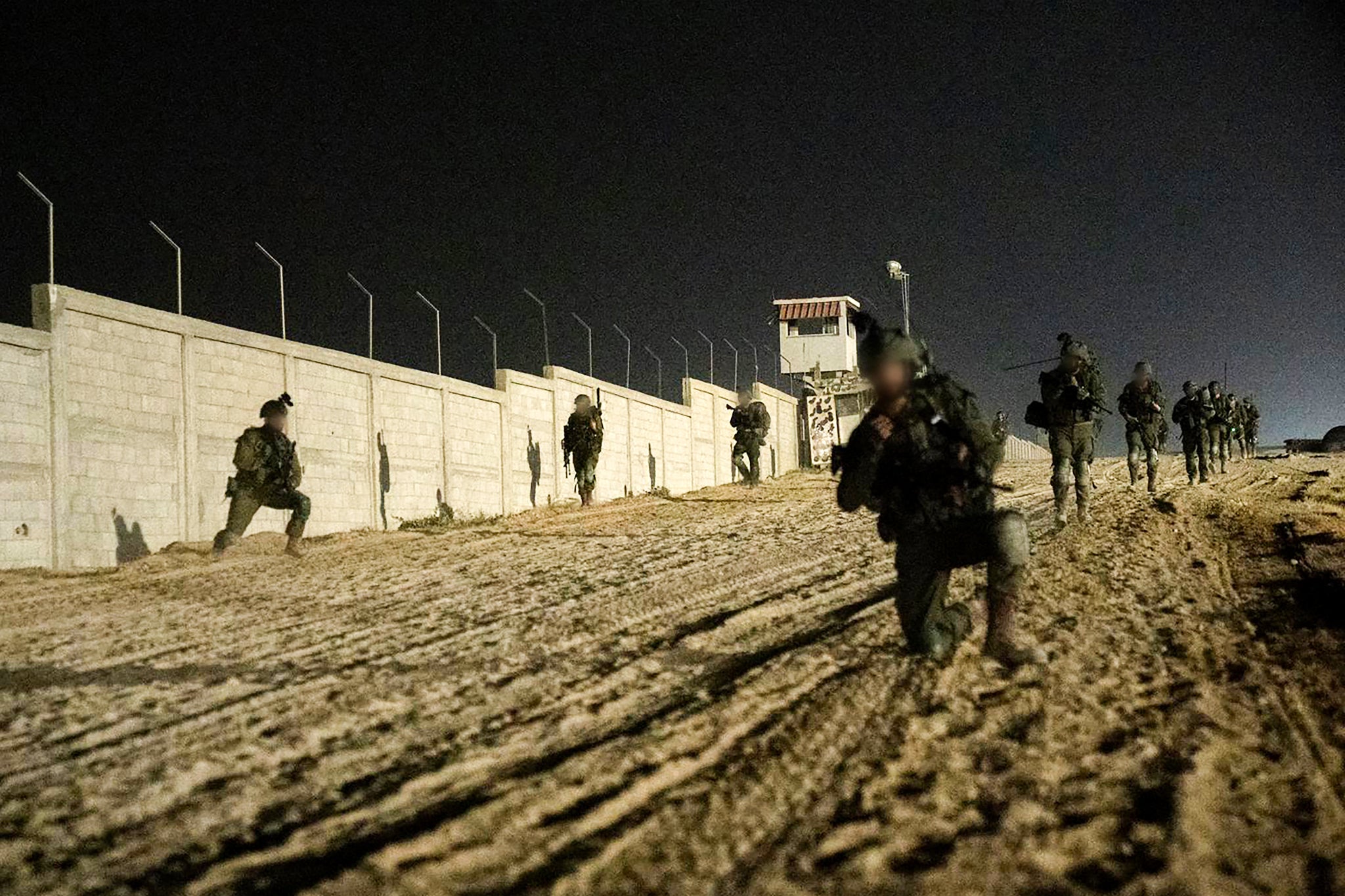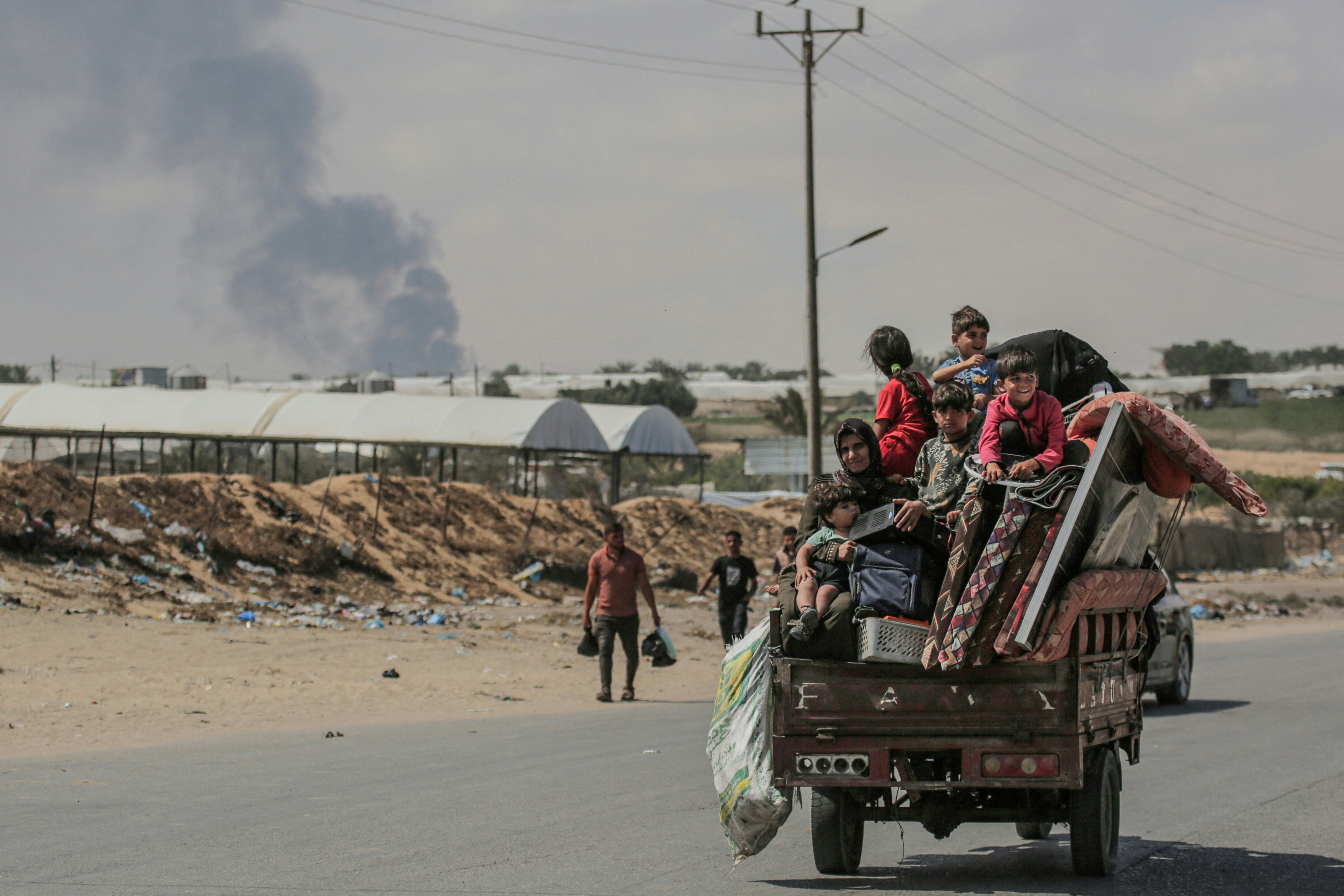Israel’s military now in control of entire Gaza land border
Military says that it is in ‘operational’ control of the buffer zone on Egypt’s border amid Rafah offensive

Israel has said it is now in effective control of Gaza's entire land border, having taken over key a buffer zone along the border between the Gaza Strip and Egypt.
The Israeli military has also continued deadly raids on Rafah in southern Gaza despite an order from the UN's top court, the International Court of Justice (ICJ) to end attacks on the city, where half of Gaza's 2.3 million people had previously taken refuge.
In a televised briefing, chief military spokesperson Daniel Hagari said Israeli forces had gained "operational" control over the "Philadelphi Corridor", using the Israeli military's code name for the 14 km-long (9 mile) corridor along the Gaza Strip's only border with Egypt.
"The Philadelphi Corridor served as an oxygen line for Hamas, which it regularly used to smuggle weapons into the area of the Gaza Strip," Mr Hagari said. Hamas is the armed Palestinian group that governs the blockaded territory.
Mr Hagari did not spell out what "operational" control referred to but an Israeli military official earlier said there were Israeli "boots on the ground" along parts of the corridor.
The border with Egypt along the southern edge was the Gaza Strip's only land border that Israel had not controlled directly.
Earlier on Wednesday, Israel sent tanks on raids into Rafah. They had moved into the heart of Rafah for the first time on Tuesday despite an order from the top United Nations court to immediately halt the assault on the city.
The ICJ said Israel had not explained how it would keep evacuees from Rafah safe and provide food, water and medicine. Its ruling also called on Hamas to immediately and unconditionally release hostages taken during the Hamas attack on 7 October. That attack, during which around 1,200 people were killed and 250 taken hostage into Gaza, triggered an Israeli offensive that has killed more than 36,000 Palestinians, according to health officials in the Hamas-run strip.
Rafah residents said Israeli tanks had pushed into Tel al-Sultan in the west and Yibna and near Shaboura in the centre before retreating towards a buffer zone on the border with Egypt, rather than staying put as they have in other offensives.
"We received distress calls from residents in Tel Al-Sultan where drones targeted displaced citizens as they moved from areas where they were staying toward the safe areas," the deputy director of ambulance and emergency services in Rafah, Haitham al Hams, said.
Palestinian health officials said 19 civilians had been killed in Israeli airstrikes and shelling across Gaza on Wednesday. Israel accuses Hamas militants of hiding among civilians, something Gaza's ruling Islamist group denies.
Fighting in Gaza will continue throughout 2024 at least, Israel's National Security Adviser Tzachi Hanegbi said, signalling Israel was not ready to end the war as Hamas has demanded as part of a deal to exchange its hostages for Palestinian prisoners.
"The fighting in Rafah is not a pointless war," Mr Hanegbi said, reiterating that Israel aimed to end Hamas rule in Gaza and stop it and its allies attacking Israel.

US Secretary of State Antony Blinken said Israel needed to craft a post-war plan for Gaza or risk lawlessness, chaos and a Hamas comeback in the enclave. Washington, Israel's closest ally, reiterated its opposition to a major ground offensive in Rafah on Tuesday while saying it did not believe such an operation was under way.
There was no word on Wednesday on developments in the ceasefire and hostage release talks. Hamas has said talks are pointless unless Israel ends its offensive on Rafah.
The Israeli military said three Israeli soldiers were killed and three badly wounded. Public broadcaster Kan radio said an explosive device had been set off in a Rafah building.
Palestinian health officials said several people were wounded by Israeli fire and stores of aid were set ablaze in eastern Rafah, where residents said Israeli bombardment had destroyed many homes in an area Israel has ordered evacuated.
Around a million Palestinians who had taken shelter in Rafah at the southern end of the Gaza Strip have now fled after Israeli orders to evacuate, the UN agency for Palestinian refugees, UNRWA, reported on Tuesday.
The Palestine Red Crescent Society (PRCS) said it had evacuated its medical teams from its field hospital in the al-Mawasi area, a designated civilian evacuation zone, because of continued bombardments.
PRCS said two of its staff were killed when an ambulance was struck while on a mission to rescue people in Rafah. In another Israeli air strike on a house in Gaza City, medics said five other Palestinians were killed.
In the nearby city of Khan Younis, an Israeli air strike killed three people overnight, including Salama Baraka, a former senior Hamas police officer, medics and Hamas media said. Another killed four people, including two children, medics said.
In northern Gaza, Israeli forces shelled Gaza City neighbourhoods and moved deeper into Jabalia, where residents said large residential districts were destroyed.
Malnutrition has become widespread in Gaza as aid deliveries have slowed to a trickle. The U.N., which has warned of famine, said on Wednesday the amount of humanitarian aid entering the enclave has dropped by two-thirds since Israel began its assault on the Rafah region this month.
Reuters
Join our commenting forum
Join thought-provoking conversations, follow other Independent readers and see their replies
Comments
Bookmark popover
Removed from bookmarks